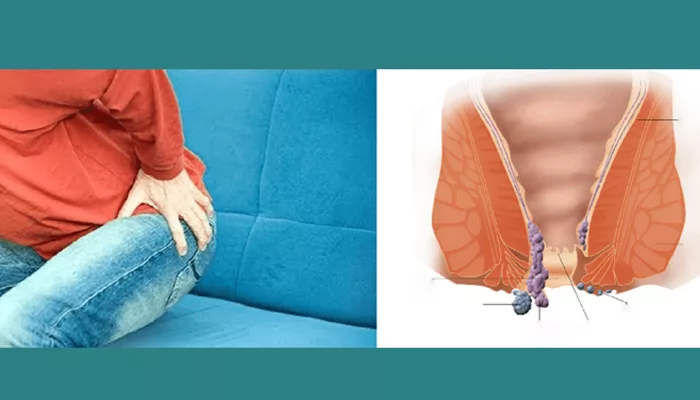What is AV Fistula
August 20, 2019
Arteriovenous Fistula (AVF) Overview
An arteriovenous (AV) fistula is a connection that develops between an artery and a vein. Ideally, blood flows from arteries to the capillaries to your veins. For a person with AV fistula, the blood misses some of the capillaries and goes directly from an artery into a vein. As a result, the tissues that rely on the bypassed capillaries receive a lower supply of blood. Even though AV fistula usually occurs in the legs, they can also occur in your arms, kidneys, etc among others. Usually, smaller AV fistula don’t have any clear symptoms and are usually only monitored by the doctor and don’t require treatment. However, large fistulae needs to be treated and may lead to symptoms like bulging veins, varicose veins, swelling, low blood pressure, tiredness, and extreme cases may lead to heart failure. Pulmonary arteriovenous fistula can be detected by a bluish tinge on skin, traces of blood when coughing, and clubbing of the fingers and are serious.
If you see any of these symptoms, it is advisable to go see your doctor. Early detection of an AV fistula reduces the chance of it becoming more complicated since it might lead to complications like heart failure or blood clots.
Early diagnosis of an arteriovenous fistula is easier to treat and can also help avoid various risks and complications, such as heart failure, blood clots, etc. Visit your doctor immediately if you experience any of the signs and symptoms mentioned above. There are many potential causes for arteriovenous fistula.
- Some cases of AV fistula can be present since birth. There isn’t an exact reason for the improper development of arteries or veins in the womb.
- A genetic condition called Osler-Weber-Rendu Syndrome can cause abnormal development of blood vessels, especially the lung vessels, which can lead to arteriovenous fistula in the lungs.
There are also some medical procedures that can lead to AV fistula.
Following are some of them:
- Surgical creation for dialysis: Sometimes an AV fistula is surgically created to make it easier to perform dialysis on patients with late-stage kidney failure.
- Complication to cardiac catheterization: During cardiac catheterization, a thin tube is inserted into either an artery or a vein in your groin, near your neck, or arm, and is threaded through the vessels to reach your heart. During this procedure, there is a very rare chance that the needle crosses a vein or artery and this can cause an AV fistula.
If the fistula is left untreated, it can lead to many other complications.
Some of these can be pretty serious:
- In case of an AV fistula, the blood flows much quicker when compared to the parts where it follows its routine path of arteries, capillaries, and veins. To compensate for this drop of blood pressure, the heart starts pumping blood much faster. Gradually, this extra strain on the heart muscles could weaken them which would cause to heart failure.
- Usually an AV fistula in your legs can lead to blood clots which could potentially become more serious causing deep vein thrombosis. Thrombosis is an extremely painful condition which could potentially be fatal, especially if the clots manage to reach your lungs or brain.
There are many risk factors that could increase your risk of developing AV fistula. Other than genetic and birth defects, it can also be caused by hypertension, high BMI, older age. Sometimes medications like blood thinners or medicines being taken to control bleeding can also cause fistula. It is also more common in women.
Consult General Surgeon Dr. Nanda Rajaneesh
Our Doctors
DR. DEVANSH ARORA
MBBS, MS...
| Experience | : | 4 Yeras Experience |
|---|---|---|
| Speciality | : | General Surgery, Lap... | Location | : | Vikas Nagar |
| Timings | : | ON CALL... |
DR. L.N. ARORA
MBBS, MS...
| Experience | : | 36 Yeras Experience |
|---|---|---|
| Speciality | : | General Surgery, Lap... | Location | : | Vikas Nagar |
| Timings | : | ON CALL... |
DR. P VIJAYA KUMAR
MBBS , DNB , FRCS...
| Experience | : | 16 Yeras Experience |
|---|---|---|
| Speciality | : | General Surgery, Lap... | Location | : | MRC Nagar |
| Timings | : | On Call... |
DR. HEMA KAPOOR
MBBS,MS...
| Experience | : | 16 Yeras Experience |
|---|---|---|
| Speciality | : | General Surgery, Lap... | Location | : | Sector 8 |
| Timings | : | Tue, Thur & Sat : 5:... |
DR. VIJAY KUMAR
MBBS, MS (General Su...
| Experience | : | 17 Yeras Experience |
|---|---|---|
| Speciality | : | General Surgery, Lap... | Location | : | NSG Chowk |
| Timings | : | Mon, Wed & Fri : 05:... |
DR. JITENDRA SINGH
MBBS, MS (General Su...
| Experience | : | 6 Yeras Experience |
|---|---|---|
| Speciality | : | General Surgery, Lap... | Location | : | NSG Chowk |
| Timings | : | Tue, Thur & Sat : 05... |
DR. T RAMKUMAR
MBBS, MS (General Su...
| Experience | : | 17 Yeras Experience |
|---|---|---|
| Speciality | : | General Surgery, Lap... | Location | : | MRC Nagar |
| Timings | : | Mon - Sat : On Call... |
DR. ARUN PRASAD
MBBS, MS, FRCSED, FR...
| Experience | : | 35 Yeras Experience |
|---|---|---|
| Speciality | : | General Surgery, Lap... | Location | : | NSG Chowk |
| Timings | : | Sat: 09:00 AM to 10:... |
DR VIJAY KUMAR MITTAL
MBBS,MS,FRCS...
| Experience | : | 30 Yeras Experience |
|---|---|---|
| Speciality | : | General Surgery, Lap... | Location | : | Agam Kuan |
| Timings | : | Mon - Sat : 12:00 PM... |
DR ABHAY KUMAR
MBBS,MS,FMAS,Advance...
| Experience | : | 13 Yeras Experience |
|---|---|---|
| Speciality | : | General Surgery, Lap... | Location | : | Agam Kuan |
| Timings | : | Mon - Sat : 11:00 AM... |
DR SAMIR GUPTA
MBBS,MS,MCH...
| Experience | : | 11 Yeras Experience |
|---|---|---|
| Speciality | : | General Surgery, Lap... | Location | : | Vikas Nagar |
| Timings | : | Mon - Sat : On Call... |
DR. GOKARAN MANJHI
MBBS, MS, FMAS, FIAG...
| Experience | : | 15 Yeras Experience |
|---|---|---|
| Speciality | : | General Surgery, Lap... | Location | : | Vikas Nagar |
| Timings | : | Mon - Sat : 10:00 AM... |
DR. KEDAR PRATAP PATIL
MBBS, MS, DNB...
| Experience | : | 12 Yeras Experience |
|---|---|---|
| Speciality | : | General Surgery, Lap... | Location | : | Sadashiv Peth |
| Timings | : | Mon - Sat : 10:00 AM... |
DR. DURAI RAVI
MBBS, MS, EFIAGES, F...
| Experience | : | 7 Yeras Experience |
|---|---|---|
| Speciality | : | General Surgery, Lap... | Location | : | MRC Nagar |
| Timings | : | Mon - Sat | 9:00am ... |
DR. AMIT THADANI
MS (General Surgery)...
| Experience | : | 17 Yeras Experience |
|---|---|---|
| Speciality | : | General Surgery, Lap... | Location | : | Chembur |
| Timings | : | Available by prior a... |
DR. PARVEZ ANSARI
M.B.B.S; D.N.B ( GEN...
| Experience | : | 12 Yeras Experience |
|---|---|---|
| Speciality | : | General Surgery, Lap... | Location | : | Kondapur |
| Timings | : | Mon - Sat : 5:30 PM ... |
DR. ASHEESH KUMAR GUPTA
MBBS, MS, MCH In Neu...
| Experience | : | 11 Yeras Experience |
|---|---|---|
| Speciality | : | General Surgery & Ne... | Location | : | Chunni Ganj |
| Timings | : | Mon - Sat : 4:00 PM ... |
DR. VAIBHAV GUPTA
MBBS, MS (General Su...
| Experience | : | 8 Yeras Experience |
|---|---|---|
| Speciality | : | General Surgery, Lap... | Location | : | Chunni Ganj |
| Timings | : | Mon - Fri : 4:00 PM ... |
DR. A S PRAKASH
MBBS, DSM (Gastro)...
| Experience | : | 22 Yeras Experience |
|---|---|---|
| Speciality | : | General Surgery, Lap... | Location | : | Koramangala |
| Timings | : | Mon - Sat : 9:00 AM ... |
DR. LAKIN VIRA
MBBS, DNB (General S...
| Experience | : | 13 Yeras Experience |
|---|---|---|
| Speciality | : | General Surgery ... | Location | : | Tardeo |
| Timings | : | Mon, Wed, Fri : 12:0... |
DR. SANJAY BORUDE
MBBS, FICS MS (Gener...
| Experience | : | 40 Yeras Experience |
|---|---|---|
| Speciality | : | General Surgery ... | Location | : | Chembur |
| Timings | : | Mon - Fri : 11:00 AM... |
DR. SANJAY BORUDE
MBBS, MS (General Su...
| Experience | : | 40 Yeras Experience |
|---|---|---|
| Speciality | : | General Surgery ... | Location | : | Tardeo |
| Timings | : | Mon - Fri : 2:00 PM ... |
DR. AMOL WAGH
MBBS, MS (General Su...
| Experience | : | 22 Yeras Experience |
|---|---|---|
| Speciality | : | General Surgery ... | Location | : | Tardeo |
| Timings | : | Tue, Thur, Sat : 4:0... |
DR. DEVBRATA ADHIKARI
MBBS, MS (General Su...
| Experience | : | 23 Yeras Experience |
|---|---|---|
| Speciality | : | General Surgery ... | Location | : | Tardeo |
| Timings | : | Mon, Wed, Fri : 6:00... |
DR. KHYATI SHROFF
MBBS, MS (General Su...
| Experience | : | 37 Yeras Experience |
|---|---|---|
| Speciality | : | General Surgery ... | Location | : | Tardeo |
| Timings | : | Mon - Fri : 6:00 PM ... |
DR. KETAN MARKER
MBBS, MS (General Su...
| Experience | : | 32 Yeras Experience |
|---|---|---|
| Speciality | : | General Surgery ... | Location | : | Chembur |
| Timings | : | Tue, Fri: 5:00 PM to... |
DR. ERBAZ MOMIN
MBBS, MS(Surg), DNB(...
| Experience | : | 12+ Yeras Experience |
|---|---|---|
| Speciality | : | General Surgery, Lap... | Location | : | Chembur |
| Timings | : | Mon, Wed, Thur, Sat ... |
DR. AVINASH VAGHA
MBBS, DNB...
| Experience | : | 37 Yeras Experience |
|---|---|---|
| Speciality | : | General Surgery, Lap... | Location | : | Sadashiv Peth |
| Timings | : | Mon - Sat : 12:30 PM... |
DR. RABINDER BOAZ
MBBS, MS(General Sur...
| Experience | : | 32 Yeras Experience |
|---|---|---|
| Speciality | : | General Surgery, Lap... | Location | : | MRC Nagar |
| Timings | : | Available by prior a... |
DR. GEETHIKA VAKATI
MBBS, MS (General Su...
| Experience | : | 8 Yeras Experience |
|---|---|---|
| Speciality | : | General Surgery ... | Location | : | Kondapur |
| Timings | : | Mon - Sat : 11:00 AM... |
DR. CARUNYA MANNAN
MBBS, MS (General Su...
| Experience | : | 7 Yeras Experience |
|---|---|---|
| Speciality | : | General Surgery, Lap... | Location | : | Alwarpet |
| Timings | : | Available by prior a... |
DR. MOHD SUHEL
MS ( General Surgery...
| Experience | : | 16 Yeras Experience |
|---|---|---|
| Speciality | : | General Surgery, Lap... | Location | : | Chunni Ganj |
| Timings | : | Mon - Sat : 12:00 PM... |
DR. MAYANK PORWAL
MBBS, MS (General Su...
| Experience | : | 16 Yeras Experience |
|---|---|---|
| Speciality | : | General Surgery ... | Location | : | Chunni Ganj |
| Timings | : | Mon - Sat : 1:00 PM ... |
DR. KAPIL AGRAWAL
M.B.B.S, M.S. (GENER...
| Experience | : | 10 Yeras Experience |
|---|---|---|
| Speciality | : | General Surgery, Lap... | Location | : | Chirag Enclave |
| Timings | : | Mon - Sat : 5:00 PM ... |
DR. UMA K RAGHUVANSHI
MBBS, MS ( General S...
| Experience | : | 30+ Yeras Experience |
|---|---|---|
| Speciality | : | General Surgery, Lap... | Location | : | Lal kothi |
| Timings | : | Available by prior a... |
DR. ASHISH KUMAR SRIVASTAV
MBBS, DNB - General ...
| Experience | : | 23 Yeras Experience |
|---|---|---|
| Speciality | : | General Surgery ... | Location | : | Sadashiv Peth |
| Timings | : | Mon - Sat : 1:00 PM ... |
DR. KIRAN SHAH
MBBS, MS ( GEN.SURGE...
| Experience | : | 24 Yeras Experience |
|---|---|---|
| Speciality | : | General Surgery, Lap... | Location | : | Tardeo |
| Timings | : | Available by prior a... |
DR SAMBIT PATNAIK
MBBS, PGDHHM, MS- GE...
| Experience | : | 15 Yeras Experience |
|---|---|---|
| Speciality | : | General Surgery ... | Location | : | Tardeo |
| Timings | : | Available by prior a... |
DR. PRAVIN GORE
MBBS, DNB (General S...
| Experience | : | 17 Yeras Experience |
|---|---|---|
| Speciality | : | General Surgery ... | Location | : | Tardeo |
| Timings | : | Available by prior a... |
DR. RATNESH JENAW
MBBS, MS, FMAS...
| Experience | : | 11 Yeras Experience |
|---|---|---|
| Speciality | : | General Surgery, Lap... | Location | : | Lal kothi |
| Timings | : | Mon - Sat : 10:30 AM... |
DR. RAJ KAMAL JENAW
MBBS...
| Experience | : | 35 Yeras Experience |
|---|---|---|
| Speciality | : | General Surgery ... | Location | : | Lal kothi |
| Timings | : | Tue, Thur, Sat : 3:0... |
DR. RAMESH SONBA DUMBRE
MBBS, MS (General Su...
| Experience | : | 42 Yeras Experience |
|---|---|---|
| Speciality | : | General Surgery, Lap... | Location | : | Sadashiv Peth |
| Timings | : | Mon - Sat : 9:00 AM... |
DR. ARNAB MOHANTY
MBBS, DNB, FRCS...
| Experience | : | 14 Yeras Experience |
|---|---|---|
| Speciality | : | General Surgery, Lap... | Location | : | Sector 8 |
| Timings | : | Mon - Sat : 10:00 A... |
DR. USHA MAHESHWARI
MBBS, MS...
| Experience | : | 25 Yeras Experience |
|---|---|---|
| Speciality | : | General Surgery, Lap... | Location | : | Chirag Enclave |
| Timings | : | Mon, Wed, Fri : 10:0... |
DR. GOVIND YADAV
MBBS, MS, FMAS...
| Experience | : | 9 Yeras Experience |
|---|---|---|
| Speciality | : | General Surgery ... | Location | : | Sector 82 |
| Timings | : | MBBS, MS, FMAS... |
DR. GULSHAN JIT SINGH
MBBS, MS (General Su...
| Experience | : | 49 Yeras Experience |
|---|---|---|
| Speciality | : | General Surgery /Vas... | Location | : | Chirag Enclave |
| Timings | : | Tue, Fri: 2:00 PM to... |
DR. SAURABH BANSAL
MBBS, DNB, FNB...
| Experience | : | 12 Yeras Experience |
|---|---|---|
| Speciality | : | General Surgery ... | Location | : | Karol Bagh |
| Timings | : | Thur : 9:00 AM to 11... |
DR. RATNAKAR NAMDEO
MBBS, MS, MCh...
| Experience | : | 4 Yeras Experience |
|---|---|---|
| Speciality | : | General Surgery, Lap... | Location | : | Ratahara |
| Timings | : | Mon - Sat : 10:00 AM... |
DR. FIROZ ALAM
MBBS, MS (General Su...
| Experience | : | 10 Yeras Experience |
|---|---|---|
| Speciality | : | General Surgery ... | Location | : | Agam Kuan |
| Timings | : | Sat - Fri : 10:00 AM... |
DR. VINAY SABHARWAL
MBBS, MS (General Su...
| Experience | : | 39 Yeras Experience |
|---|---|---|
| Speciality | : | General Surgery, Lap... | Location | : | Karol Bagh |
| Timings | : | Mon, Wed, Fri : 10:0... |
DR. R S GANDHI
MBBS, MS (General Su...
| Experience | : | 35 Yeras Experience |
|---|---|---|
| Speciality | : | General Surgery ... | Location | : | Karol Bagh |
| Timings | : | Tue, Thur, Sat : 10:... |
DR. S K PODDAR
MBBS,MS...
| Experience | : | 26 Yeras Experience |
|---|---|---|
| Speciality | : | General Surgery, Lap... | Location | : | Chirag Enclave |
| Timings | : | Tue, Thur : 11:00 AM... |
DR. SHIVANSHU MISRA
MBBS, MS, FNB,FAIS, ...
| Experience | : | 15 Yeras Experience |
|---|---|---|
| Speciality | : | General Surgery ... | Location | : | Chunni Ganj |
| Timings | : | Mon - Sat : 11:00 AM... |
DR. RESHMA PALEP
M.B.B.S, M.S, D.N.B,...
| Experience | : | 19 Yeras Experience |
|---|---|---|
| Speciality | : | General Surgery, Lap... | Location | : | Tardeo |
| Timings | : | Available by prior a... |
DR. ALMAS KHAN
MBBS, DNB ,FMAS...
| Experience | : | 5 Yeras Experience |
|---|---|---|
| Speciality | : | General Surgery, Lap... | Location | : | Tardeo |
| Timings | : | Available by prior a... |
DR. VINAYKUMAR THATI
MBBS, MS, DNB...
| Experience | : | 11 Yeras Experience |
|---|---|---|
| Speciality | : | General Surgery, Lap... | Location | : | Tardeo |
| Timings | : | Available by prior a... |
DR. AKHIL BHAT
MBBS, MS (Gen. Surg)...
| Experience | : | 21 Yeras Experience |
|---|---|---|
| Speciality | : | General Surgery, Lap... | Location | : | Koramangala |
| Timings | : | Mon - Sat : 4:30 PM ... |
DR. J G SHARATH KUMAR
MBBS, MS (GENERAL SU...
| Experience | : | 13 Yeras Experience |
|---|---|---|
| Speciality | : | Gastroenterology/Gen... | Location | : | Koramangala |
| Timings | : | Mon - Sat : 8:00 AM ... |
DR. VARUN J
MBBS, DNB (Gen Surge...
| Experience | : | 15 Yeras Experience |
|---|---|---|
| Speciality | : | General Surgery /Vas... | Location | : | Koramangala |
| Timings | : | Mon, Fri : 11:00 AM ... |
DR. ALOK AGARWAL
MBBS, MS (General Su...
| Experience | : | 31 Yeras Experience |
|---|---|---|
| Speciality | : | General Surgery ... | Location | : | Karol Bagh |
| Timings | : | Thur & Sat : 9:00 AM... |
DR. LAXMAN SALVE
MBBS, MS (General Su...
| Experience | : | 13 Yeras Experience |
|---|---|---|
| Speciality | : | General Surgery ... | Location | : | Tardeo |
| Timings | : | Mon - Sat : 2.00PM t... |
DR. SHULMIT VAIDYA
MBBS, MS (General Su...
| Experience | : | 22 Yeras Experience |
|---|---|---|
| Speciality | : | General Surgery ... | Location | : | Tardeo |
| Timings | : | Mon, Wed & Fri : 4.0... |
DR. SUNNY AGARWAL
MBBS, MS (General Su...
| Experience | : | 14 Yeras Experience |
|---|---|---|
| Speciality | : | General Surgery ... | Location | : | Chembur |
| Timings | : | Mon - Sat : 11:00 AM... |
DR. RAJEEV NAIK
MBBS, MS (General Su...
| Experience | : | 18 Yeras Experience |
|---|---|---|
| Speciality | : | General Surgery ... | Location | : | Chembur |
| Timings | : | Mon - Sat : 12:00 PM... |
DR. NIKUNJ BANSAL
MBBS, MS, FNB...
| Experience | : | 12 Yeras Experience |
|---|---|---|
| Speciality | : | General Surgery, Lap... | Location | : | Karol Bagh |
| Timings | : | Mon - Fri : 4:00 PM ... |
DR. APARNA GOVIL BHASKER
MBBS, MS (General Su...
| Experience | : | 21 Yeras Experience |
|---|---|---|
| Speciality | : | Bariatric Surgery/Ge... | Location | : | Chembur |
| Timings | : | Thur : 2:00 PM to 4:... |
DR. DILIP RAJPAL
MS, MAIS, FICS (USA)...
| Experience | : | 15 Yeras Experience |
|---|---|---|
| Speciality | : | General Surgery, Lap... | Location | : | Chembur |
| Timings | : | Tue, Thur, Sat : 3:0... |
DR SAMBIT PATNAIK
MBBS, PGDHHM, MS- GE...
| Experience | : | 15 Yeras Experience |
|---|---|---|
| Speciality | : | General Surgery, Lap... | Location | : | Chembur |
| Timings | : | Mon - Sat : 9:00 AM ... |
DR LAXMAN SALVE
MBBS, MS General Sur...
| Experience | : | 20+ Yeras Experience |
|---|---|---|
| Speciality | : | General Surgery ... | Location | : | Chembur |
| Timings | : | Tue, Thur, Sat : 7.3... |
DR. REKHA JAISWAL
MBBS , MS (General S...
| Experience | : | 20 Yeras Experience |
|---|---|---|
| Speciality | : | General Surgery, Lap... | Location | : | Chirag Enclave |
| Timings | : | On-call... |
DR. ANIL MALIK
MBBS, MS...
| Experience | : | 40 Yeras Experience |
|---|---|---|
| Speciality | : | General Surgery, Lap... | Location | : | Chirag Enclave |
| Timings | : | Mon, Wed, Fri : 10:0... |
DR. PRAKHAR GUPTA
MBBS, MS, FNB...
| Experience | : | 8 Yeras Experience |
|---|---|---|
| Speciality | : | General Surgery, Lap... | Location | : | Chirag Enclave |
| Timings | : | Mon - Sat : 4:00 PM ... |
DR. ATUL SARDANA
MBBS, MS (General Su...
| Experience | : | 25 Yeras Experience |
|---|---|---|
| Speciality | : | General Surgery, Lap... | Location | : | Chirag Enclave |
| Timings | : | Mon - Sat : 5:00 PM ... |
DR. SAURABH BANSAL
MBBS, DNB, FNB...
| Experience | : | 12 Yeras Experience |
|---|---|---|
| Speciality | : | General Surgery, Lap... | Location | : | Chirag Enclave |
| Timings | : | Mon, Wed, Fri : 4:00... |
DR. DEEPAK KAPOOR
MBBS, MS, FIAGES...
| Experience | : | 30 Yeras Experience |
|---|---|---|
| Speciality | : | General Surgery, Lap... | Location | : | Chirag Enclave |
| Timings | : | Tue, Thur, Sat : 4:0... |
DR. ATUL SARDANA
MBBS, MS (General Su...
| Experience | : | 25 Yeras Experience |
|---|---|---|
| Speciality | : | Bariatric Surgery/Ge... | Location | : | Karol Bagh |
| Timings | : | Mon - Sat : 12:00 PM... |
DR. ANJALI BHARTIYA
MBBS, DNB (General s...
| Experience | : | 9 Yeras Experience |
|---|---|---|
| Speciality | : | General Surgery ... | Location | : | Karol Bagh |
| Timings | : | Mon, Wed & Sat : 5:0... |
DR. SAAD ANWAR
MBBS, MS (General Su...
| Experience | : | 7 Yeras Experience |
|---|---|---|
| Speciality | : | General Surgery & Ga... | Location | : | Chunni Ganj |
| Timings | : | Mon - Sat : 9:00 AM ... |
DR. CHINNAYA PARIMI
MBBS, FACS (Fellow, ...
| Experience | : | 19 Yeras Experience |
|---|---|---|
| Speciality | : | General Surgery & Ga... | Location | : | Kondapur |
| Timings | : | Mon - Sat: 9:30 AM t... |
DR. DEVANSH ARORA
MBBS, MS...
| Experience | : | 4 Yeras Experience |
|---|---|---|
| Speciality | : | General Surgery, Lap... | Location | : | Vikas Nagar |
| Timings | : | ON CALL... |
DR. L.N. ARORA
MBBS, MS...
| Experience | : | 36 Yeras Experience |
|---|---|---|
| Speciality | : | General Surgery, Lap... | Location | : | Vikas Nagar |
| Timings | : | ON CALL... |
DR. P VIJAYA KUMAR
MBBS , DNB , FRCS...
| Experience | : | 16 Yeras Experience |
|---|---|---|
| Speciality | : | General Surgery, Lap... | Location | : | MRC Nagar |
| Timings | : | On Call... |
DR. HEMA KAPOOR
MBBS,MS...
| Experience | : | 16 Yeras Experience |
|---|---|---|
| Speciality | : | General Surgery, Lap... | Location | : | Sector 8 |
| Timings | : | Tue, Thur & Sat : 5:... |
DR. VIJAY KUMAR
MBBS, MS (General Su...
| Experience | : | 17 Yeras Experience |
|---|---|---|
| Speciality | : | General Surgery, Lap... | Location | : | NSG Chowk |
| Timings | : | Mon, Wed & Fri : 05:... |
DR. JITENDRA SINGH
MBBS, MS (General Su...
| Experience | : | 6 Yeras Experience |
|---|---|---|
| Speciality | : | General Surgery, Lap... | Location | : | NSG Chowk |
| Timings | : | Tue, Thur & Sat : 05... |
DR. T RAMKUMAR
MBBS, MS (General Su...
| Experience | : | 17 Yeras Experience |
|---|---|---|
| Speciality | : | General Surgery, Lap... | Location | : | MRC Nagar |
| Timings | : | Mon - Sat : On Call... |
DR. ARUN PRASAD
MBBS, MS, FRCSED, FR...
| Experience | : | 35 Yeras Experience |
|---|---|---|
| Speciality | : | General Surgery, Lap... | Location | : | NSG Chowk |
| Timings | : | Sat: 09:00 AM to 10:... |
DR VIJAY KUMAR MITTAL
MBBS,MS,FRCS...
| Experience | : | 30 Yeras Experience |
|---|---|---|
| Speciality | : | General Surgery, Lap... | Location | : | Agam Kuan |
| Timings | : | Mon - Sat : 12:00 PM... |
DR ABHAY KUMAR
MBBS,MS,FMAS,Advance...
| Experience | : | 13 Yeras Experience |
|---|---|---|
| Speciality | : | General Surgery, Lap... | Location | : | Agam Kuan |
| Timings | : | Mon - Sat : 11:00 AM... |
DR SAMIR GUPTA
MBBS,MS,MCH...
| Experience | : | 11 Yeras Experience |
|---|---|---|
| Speciality | : | General Surgery, Lap... | Location | : | Vikas Nagar |
| Timings | : | Mon - Sat : On Call... |
DR. GOKARAN MANJHI
MBBS, MS, FMAS, FIAG...
| Experience | : | 15 Yeras Experience |
|---|---|---|
| Speciality | : | General Surgery, Lap... | Location | : | Vikas Nagar |
| Timings | : | Mon - Sat : 10:00 AM... |
DR. KEDAR PRATAP PATIL
MBBS, MS, DNB...
| Experience | : | 12 Yeras Experience |
|---|---|---|
| Speciality | : | General Surgery, Lap... | Location | : | Sadashiv Peth |
| Timings | : | Mon - Sat : 10:00 AM... |
DR. DURAI RAVI
MBBS, MS, EFIAGES, F...
| Experience | : | 7 Yeras Experience |
|---|---|---|
| Speciality | : | General Surgery, Lap... | Location | : | MRC Nagar |
| Timings | : | Mon - Sat | 9:00am ... |
DR. AMIT THADANI
MS (General Surgery)...
| Experience | : | 17 Yeras Experience |
|---|---|---|
| Speciality | : | General Surgery, Lap... | Location | : | Chembur |
| Timings | : | Available by prior a... |
DR. PARVEZ ANSARI
M.B.B.S; D.N.B ( GEN...
| Experience | : | 12 Yeras Experience |
|---|---|---|
| Speciality | : | General Surgery, Lap... | Location | : | Kondapur |
| Timings | : | Mon - Sat : 5:30 PM ... |
DR. VAIBHAV GUPTA
MBBS, MS (General Su...
| Experience | : | 8 Yeras Experience |
|---|---|---|
| Speciality | : | General Surgery, Lap... | Location | : | Chunni Ganj |
| Timings | : | Mon - Fri : 4:00 PM ... |
DR. A S PRAKASH
MBBS, DSM (Gastro)...
| Experience | : | 22 Yeras Experience |
|---|---|---|
| Speciality | : | General Surgery, Lap... | Location | : | Koramangala |
| Timings | : | Mon - Sat : 9:00 AM ... |
DR. ERBAZ MOMIN
MBBS, MS(Surg), DNB(...
| Experience | : | 12+ Yeras Experience |
|---|---|---|
| Speciality | : | General Surgery, Lap... | Location | : | Chembur |
| Timings | : | Mon, Wed, Thur, Sat ... |
DR. AVINASH VAGHA
MBBS, DNB...
| Experience | : | 37 Yeras Experience |
|---|---|---|
| Speciality | : | General Surgery, Lap... | Location | : | Sadashiv Peth |
| Timings | : | Mon - Sat : 12:30 PM... |
DR. RABINDER BOAZ
MBBS, MS(General Sur...
| Experience | : | 32 Yeras Experience |
|---|---|---|
| Speciality | : | General Surgery, Lap... | Location | : | MRC Nagar |
| Timings | : | Available by prior a... |
DR. CARUNYA MANNAN
MBBS, MS (General Su...
| Experience | : | 7 Yeras Experience |
|---|---|---|
| Speciality | : | General Surgery, Lap... | Location | : | Alwarpet |
| Timings | : | Available by prior a... |
DR. MOHD SUHEL
MS ( General Surgery...
| Experience | : | 16 Yeras Experience |
|---|---|---|
| Speciality | : | General Surgery, Lap... | Location | : | Chunni Ganj |
| Timings | : | Mon - Sat : 12:00 PM... |
DR. KAPIL AGRAWAL
M.B.B.S, M.S. (GENER...
| Experience | : | 10 Yeras Experience |
|---|---|---|
| Speciality | : | General Surgery, Lap... | Location | : | Chirag Enclave |
| Timings | : | Mon - Sat : 5:00 PM ... |
DR. UMA K RAGHUVANSHI
MBBS, MS ( General S...
| Experience | : | 30+ Yeras Experience |
|---|---|---|
| Speciality | : | General Surgery, Lap... | Location | : | Lal kothi |
| Timings | : | Available by prior a... |
DR. KIRAN SHAH
MBBS, MS ( GEN.SURGE...
| Experience | : | 24 Yeras Experience |
|---|---|---|
| Speciality | : | General Surgery, Lap... | Location | : | Tardeo |
| Timings | : | Available by prior a... |
DR. RATNESH JENAW
MBBS, MS, FMAS...
| Experience | : | 11 Yeras Experience |
|---|---|---|
| Speciality | : | General Surgery, Lap... | Location | : | Lal kothi |
| Timings | : | Mon - Sat : 10:30 AM... |
DR. RAMESH SONBA DUMBRE
MBBS, MS (General Su...
| Experience | : | 42 Yeras Experience |
|---|---|---|
| Speciality | : | General Surgery, Lap... | Location | : | Sadashiv Peth |
| Timings | : | Mon - Sat : 9:00 AM... |
DR. ARNAB MOHANTY
MBBS, DNB, FRCS...
| Experience | : | 14 Yeras Experience |
|---|---|---|
| Speciality | : | General Surgery, Lap... | Location | : | Sector 8 |
| Timings | : | Mon - Sat : 10:00 A... |
DR. USHA MAHESHWARI
MBBS, MS...
| Experience | : | 25 Yeras Experience |
|---|---|---|
| Speciality | : | General Surgery, Lap... | Location | : | Chirag Enclave |
| Timings | : | Mon, Wed, Fri : 10:0... |
DR. RATNAKAR NAMDEO
MBBS, MS, MCh...
| Experience | : | 4 Yeras Experience |
|---|---|---|
| Speciality | : | General Surgery, Lap... | Location | : | Ratahara |
| Timings | : | Mon - Sat : 10:00 AM... |
DR. VINAY SABHARWAL
MBBS, MS (General Su...
| Experience | : | 39 Yeras Experience |
|---|---|---|
| Speciality | : | General Surgery, Lap... | Location | : | Karol Bagh |
| Timings | : | Mon, Wed, Fri : 10:0... |
DR. S K PODDAR
MBBS,MS...
| Experience | : | 26 Yeras Experience |
|---|---|---|
| Speciality | : | General Surgery, Lap... | Location | : | Chirag Enclave |
| Timings | : | Tue, Thur : 11:00 AM... |
DR. RESHMA PALEP
M.B.B.S, M.S, D.N.B,...
| Experience | : | 19 Yeras Experience |
|---|---|---|
| Speciality | : | General Surgery, Lap... | Location | : | Tardeo |
| Timings | : | Available by prior a... |
DR. ALMAS KHAN
MBBS, DNB ,FMAS...
| Experience | : | 5 Yeras Experience |
|---|---|---|
| Speciality | : | General Surgery, Lap... | Location | : | Tardeo |
| Timings | : | Available by prior a... |
DR. VINAYKUMAR THATI
MBBS, MS, DNB...
| Experience | : | 11 Yeras Experience |
|---|---|---|
| Speciality | : | General Surgery, Lap... | Location | : | Tardeo |
| Timings | : | Available by prior a... |
DR. AKHIL BHAT
MBBS, MS (Gen. Surg)...
| Experience | : | 21 Yeras Experience |
|---|---|---|
| Speciality | : | General Surgery, Lap... | Location | : | Koramangala |
| Timings | : | Mon - Sat : 4:30 PM ... |
DR. J G SHARATH KUMAR
MBBS, MS (GENERAL SU...
| Experience | : | 13 Yeras Experience |
|---|---|---|
| Speciality | : | Gastroenterology/Gen... | Location | : | Koramangala |
| Timings | : | Mon - Sat : 8:00 AM ... |
DR. NIKUNJ BANSAL
MBBS, MS, FNB...
| Experience | : | 12 Yeras Experience |
|---|---|---|
| Speciality | : | General Surgery, Lap... | Location | : | Karol Bagh |
| Timings | : | Mon - Fri : 4:00 PM ... |
DR. DILIP RAJPAL
MS, MAIS, FICS (USA)...
| Experience | : | 15 Yeras Experience |
|---|---|---|
| Speciality | : | General Surgery, Lap... | Location | : | Chembur |
| Timings | : | Tue, Thur, Sat : 3:0... |
DR SAMBIT PATNAIK
MBBS, PGDHHM, MS- GE...
| Experience | : | 15 Yeras Experience |
|---|---|---|
| Speciality | : | General Surgery, Lap... | Location | : | Chembur |
| Timings | : | Mon - Sat : 9:00 AM ... |
DR. REKHA JAISWAL
MBBS , MS (General S...
| Experience | : | 20 Yeras Experience |
|---|---|---|
| Speciality | : | General Surgery, Lap... | Location | : | Chirag Enclave |
| Timings | : | On-call... |
DR. ANIL MALIK
MBBS, MS...
| Experience | : | 40 Yeras Experience |
|---|---|---|
| Speciality | : | General Surgery, Lap... | Location | : | Chirag Enclave |
| Timings | : | Mon, Wed, Fri : 10:0... |
DR. PRAKHAR GUPTA
MBBS, MS, FNB...
| Experience | : | 8 Yeras Experience |
|---|---|---|
| Speciality | : | General Surgery, Lap... | Location | : | Chirag Enclave |
| Timings | : | Mon - Sat : 4:00 PM ... |
DR. ATUL SARDANA
MBBS, MS (General Su...
| Experience | : | 25 Yeras Experience |
|---|---|---|
| Speciality | : | General Surgery, Lap... | Location | : | Chirag Enclave |
| Timings | : | Mon - Sat : 5:00 PM ... |
DR. SAURABH BANSAL
MBBS, DNB, FNB...
| Experience | : | 12 Yeras Experience |
|---|---|---|
| Speciality | : | General Surgery, Lap... | Location | : | Chirag Enclave |
| Timings | : | Mon, Wed, Fri : 4:00... |
DR. DEEPAK KAPOOR
MBBS, MS, FIAGES...
| Experience | : | 30 Yeras Experience |
|---|---|---|
| Speciality | : | General Surgery, Lap... | Location | : | Chirag Enclave |
| Timings | : | Tue, Thur, Sat : 4:0... |
NOTICE BOARD
CONTACT US
CONTACT US
 Book Appointment
Book Appointment
























































.jpg)
























.svg)
.svg)
.svg)
.svg)








